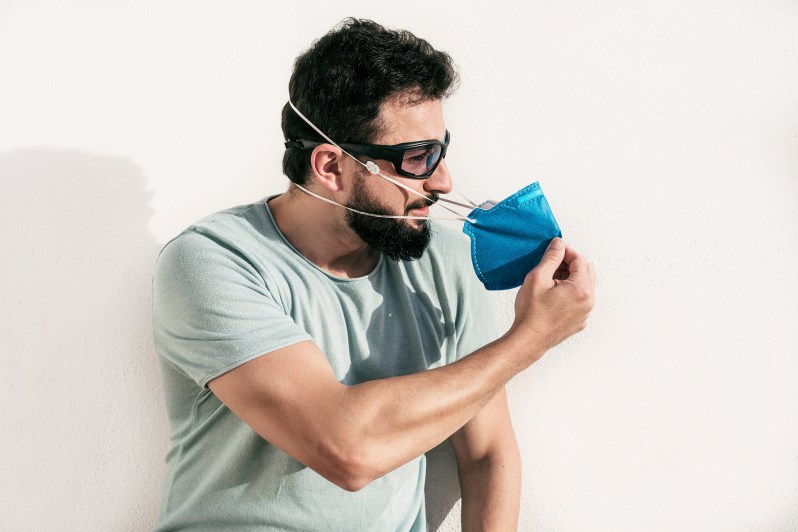
As our nation (and world) attempts to reinforce lockdowns with this surge of coronavirus cases, two precautions are still recommended for public safety: Maintain social distancing and wear a cloth face covering.
That second piece of advice, though, has had those of us with beards scrambling a bit, searching the internet for assurance that our patiently crafted facial hair isn’t making us more vulnerable to contracting, or potentially transmitting, the virus.
Some of the fear started with reports in April 2020 during the pandemic that hospitals in the United Kingdom were requiring doctors to shave, even if they had only a day’s stubble. We talk to Dr. Natasha Mubeen Chida, the assistant Director of Infectious Diseases Fellowship Program at Johns Hopkins University School of Medicine in Baltimore, Maryland, to get some guidance on whether to shave or not to shave.
“Things got confused because these guidelines were regarding the masks that health care workers who have contact with COVID-19 patients are required to wear,” Chida, who’s also an assistant professor of Medicine at the university, tells The Manual. “These N95 respirators are specifically designed to protect from the airborne transmission of the virus, so the worker really does need to be clean-shaven in order to have a really good seal between the mask and his skin.”
But for civilians wearing face coverings in public, and who are not exposed to COVID-19 patients, “they don’t need to worry about facial hair or shaving,” Chida says. “This is really only an issue if you are a health care worker.”
Chida reminds us that the reason the general public has been asked to wear cloth face coverings is “not to protect you from getting COVID, but to protect you from transmitting COVID to somebody else. These masks can prevent droplets from leaving your mouth, going into the air and somebody else contracting the disease. It’s what we call droplet transmission prevention.”
But she does caution against touching the face or beard — like any part of your face — and suggests that if you can’t control the urge to mess with your facial hair, that you might want to consider shaving it.
Adam Reyes, owner of Virile Barber and Shop in Jersey City, New Jersey, suggests clients keep their beards short or even shave them entirely to avoid touching their faces.
“Beard-sporting folk are definitely facing a bit of a struggle when it comes to wearing a mask. Mainly that it cramps the style,” Reyes tells The Manual. “More so for larger beards than shorter, trimmed, and tapered ones. In my opinion, a beard length that you can swing a mask over is more aesthetically pleasing.”
But for guys who are planning to still grow their beard out, Dr. Mary Clifton, a Doctor of Internal Medicine on the board of skincare line Boomer Naturals, recommends opting for one of their extra-large size masks.
“[Your mask] should be large enough to fit around your cheekbone structure and jaw, and have enough fabric on the side to prevent air from escaping,” Clifton tells The Manual. “The main thing is for the mask to be able to filter air, allowing you to breathe through the covering. It should be large enough so that you’re not breathing through gaps on the side … A man with facial hair would benefit from having an extra-wide mask. That makes it that much harder for the air to get around the edges and all the way to the face holes.”
Should men be concerned if the covering doesn’t cup under their chin? “If the face covering is big enough to provide a reasonably snug fit around all of those different areas, and doesn’t have a lot of gaps where things can easily transfer around the edges, it’s fine,” says Clifton.
Clifton makes one other important point. “The very best way to keep a mask clean is just to wash it in soap and water. The detergent breaks the outer cell layers of the virus and disables it immediately. Washing it and hanging it to dry for 12 hours gives you a very, very safe, very clean mask that you can use again. If you go out a lot and can’t wash and thoroughly dry your mask between wearings, just get three or four of them, and then you always have one in a drying phase and another one you know at the ready.”
Sounds like a great plan for both safety and making a statement.



